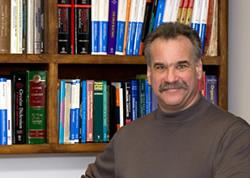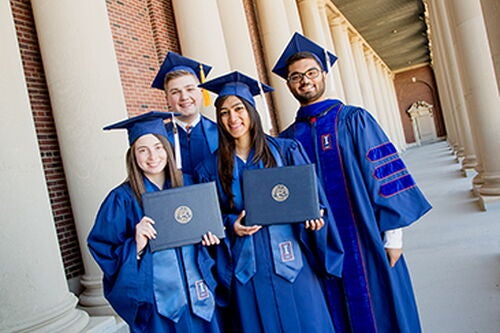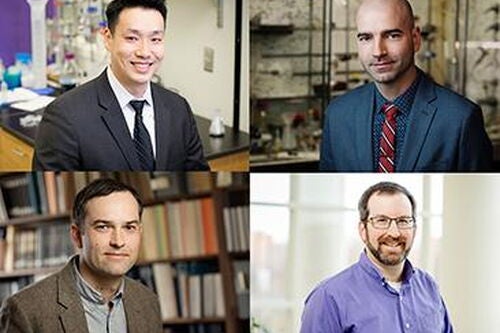Hope for a 'Conceptually New Paradigm'

A longtime faculty member at the U of I has been awarded a $1 million grant to advance his groundbreaking organic chemistry research in the discovery and development of new chemical catalysts.
Scott E. Denmark, the R. C. Fuson Professor of Chemistry, received the prestigious and highly competitive W. M. Keck Foundation Science and Engineering Program Grant after a rigorous application process. These grants are awarded to researchers whose projects are innovative, transformative, and challenge a “prevailing paradigm,” according to the Foundation.
The award will allow Denmark and his team to explore how to discover and optimize new catalytic reactions. The team is developing a highly innovative protocol that involves merging high-throughput chemical synthesis of catalyst libraries with chemoinformatic analysis, the use of mathematical algorithms designed to identify trends in large sets of data.
An effective catalyst enables the rapid, efficient, and selective conversion of a readily available building block or starting material into high value-added products, such as pharmaceutical agents, agricultural chemicals, personal care products, smart polymers, plastics, biorenewables, and countless other materials. Denmark believes that the new approach being developed in his laboratories has the potential to significantly reduce the amount of time and effort required to discover new catalysts and catalytic processes.
“Often in both academic and industrial research settings, the question arises, ‘How do you go about the process of inventing and optimizing new catalysts for new transformations?’” explains Denmark, who has more than 30 years of experience in the field. “Currently, there’s no good answer. It’s done by trial and error. So what we proposed to the Keck Foundation is a fundamental new paradigm.”
That new paradigm will involve implementing the automated synthesis of hundreds of molecules as catalyst candidates in Denmark’s laboratory, testing their ability to effect a given chemical transformation (e.g. rate, yield, selectivity), and then using regression analysis or principle component analysis to help identify those molecular characteristics that combine to give high performance. The large amount of data generated from these libraries cannot be interpreted without the help of computers.
“What we do is we combine the ability to make many different compounds quickly, evaluate the way they behave, and then feed that data into a computer to develop a mathematical model that correlates something about that collection of molecules with the way they behave as catalysts,” Denmark explains. “The unappreciated beauty of this approach is that it teaches you things you never would have anticipated. In effect we are asking the chemical reaction what it wants rather than enforcing our preconceived notions about what we think should work.”
With the mathematical interpretation of these trends as a guide, researchers can be more focused in testing possibilities that show promise, and, while improving the mathematical model as they go, more quickly able to find an ideal catalyst for a particular chemical reaction.
As a result of receiving the grant, Denmark is hiring people for the project, including experts in both chemical synthesis and computational chemistry.
As for the outcome, it’s hard to anticipate where this work may lead. Denmark views himself as a chemical “centrist,” and is not necessarily interested in specific applications of the catalysts that can be created, but rather in the development of new concepts for the invention of new catalysts while simultaneously learning the rules by which organic molecules can be converted into those for a myriad of uses in modern life.
Denmark is highly optimistic about the potential impact. “This approach could save years in the discovery process,” he says. “When a company finds a specific compound that looks like a winner and is marketable, the big challenge becomes how to make it cheaply, rapidly, selectively, and efficiently. That’s when what we do comes into play.”
The W. M. Keck Foundation was established in 1954 in Los Angeles by William Myron Keck, founder of the Superior Oil Company. With assets of more than $1.2 billion, the W. M. Keck Foundation supports outstanding science, engineering, and medical research, and undergraduate education.








